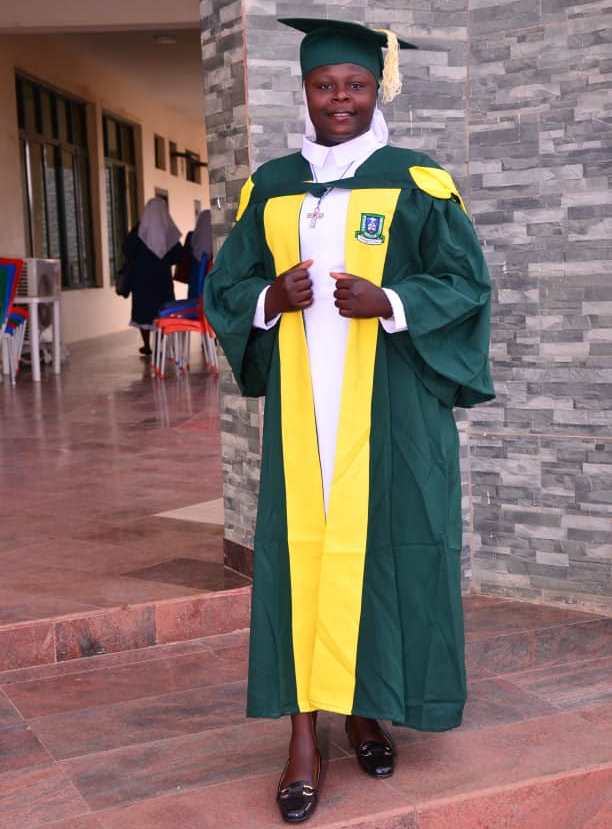It was, at first, a typical student – lecturer relationship. In other words, she was just another student in a huge class by the standards of a new university such as Veritas University, Abuja in Nigeria. Then she showed up one day with a literary piece she had written and wanted me to look at. I was becoming a victim of my challenge to students to break barriers and invade other knowledge territories. Otherwise, what was a Computer Studies major doing with such a stuff?
Later when I sat down to read her piece, I found that it was something beyond me. So, I advised her to meet Dr. Emmanuel Egar. Dr. Egar was the Head of Department of English and Literary Studies at the time in that university. He is of the literati through and through, with a two- decade teaching history in the United States before retuning home. He will score this script better than myself, I told her at the end of a lecture.
The idea of meeting someone else did not quite appeal to her which is probably understandable. Just go to the HoD’s office and tell him you wrote this and I asked you to see him. It turned out that they had a great conversation because some of the observations and the vocabulary she was now using about her own text suggested Dr. Egar had really ‘read’ the piece and was also excited about it.
Do you think you would be better off in the Department of English? Computer Studies is great but a Reverend Sister who can emerge as a literary voice would be a wonderful development for you, for the Church and the world.
I cannot remember now if she came back or came with an answer eventually. In fact, by the time I saw her again, she was either rounding off her third year or about to enter the fourth year. And the script did not become an issue again, partly because I was already on my way out of the school.
It is thus great to know Sister Annastasia is already a graduate and a serving corper, meaning that all of them in that stream of the ‘General Studies’ class I taught are also graduates now. We cannot thank God enough.
There is a slogan which says ‘It is a privilege to work in Veritas”, (not sure if I got it exactly). It is a mediated construction of the university but it has its own nuggets of truth. One of such is the sight of Reverend Sisters and Reverend Fathers with their impeccable outfits which makes them into reminders to the rest of us who are not that detailed in religious matters. That is apart from the diversity they bring to the university idea in that, though it is a Catholic owned university, it is, first and foremost, a university. Or so it should.
The Reverend Sisters were particularly helpful. They do not come late to class. They do not create any problems for class management, sitting mostly in the first few rows and, therefore, simply ready to listen or ask a question. They are reliable when a lecturer needs an honest opinion regarding a problematic claim any other student(s) may be making. And they have no problems being asked to put the class and the teacher in their prayers.
Veritas University’s Vice-Chancellor, Prof Hyacinth Ichoku heightened the mystique of Reverend Sisters one day when they had a commemoration. He drew attention to the social locale of that category – the life of poverty, chastity and commitment to others that they live. They are not paid as such and what little they get is ploughed somehow into charity or so.
So, it is heartening to see a large number of them in the NYSC and/or back to the larger society as graduates. In that case, Rev Sr. Annastasia Kinse is a case of one of them. That does not diminish her exemplarity in terms of breaking disciplinary barriers by being a Computer Studies major with presence of mind for literature and the literary. That is actually the point about this piece because all literary potentials must be enhanced. Literature makes us better human beings in its own peculiar ways.
One might have failed to give adequate attention to Sister Annastasia’s thirst for literary guidance previously but that challenge is now in the open for people who are even better placed to intervene in whatever manner possible. It is said that there is no better training in poetry than adolescence. That contention should be expanded so that it becomes something like: there can hardly be a better training in literary sensibility than being an African, a Nigerian, a woman, a Reverend Sister and a graduate in Computer Studies!
Script by Adagbo ONOJA,




























